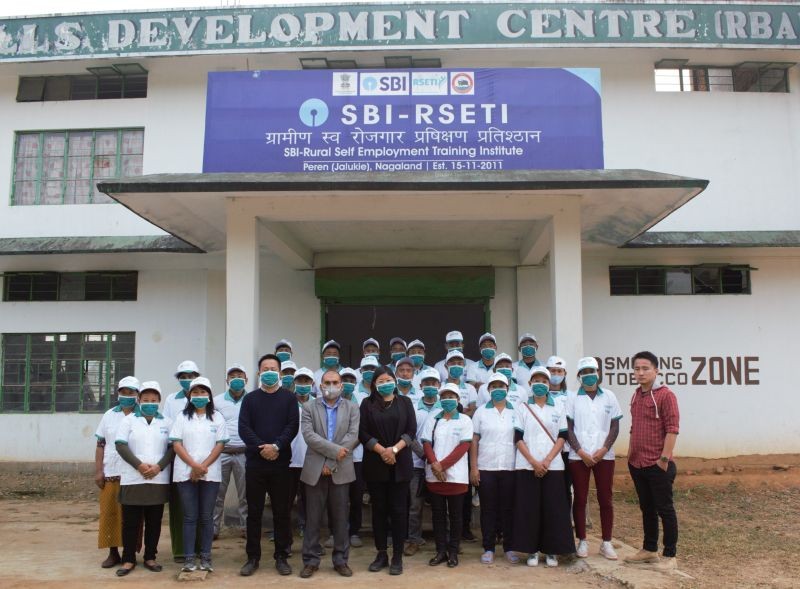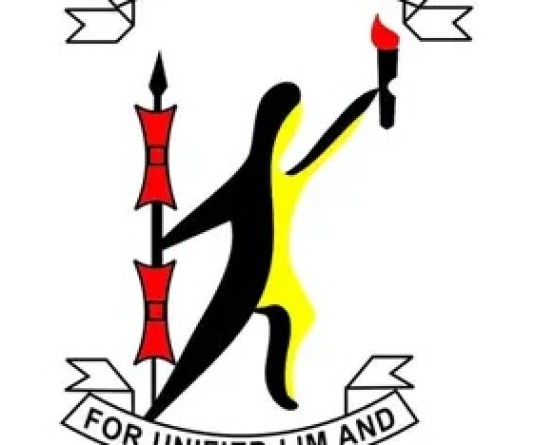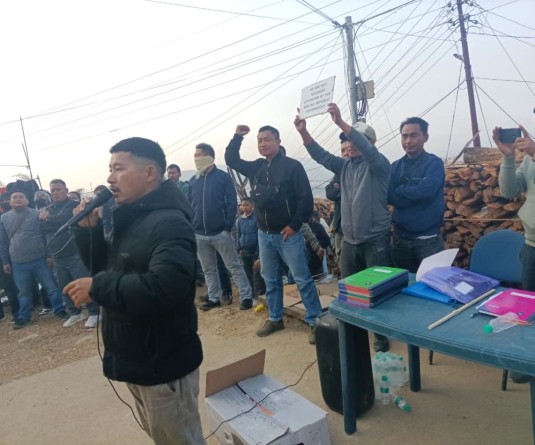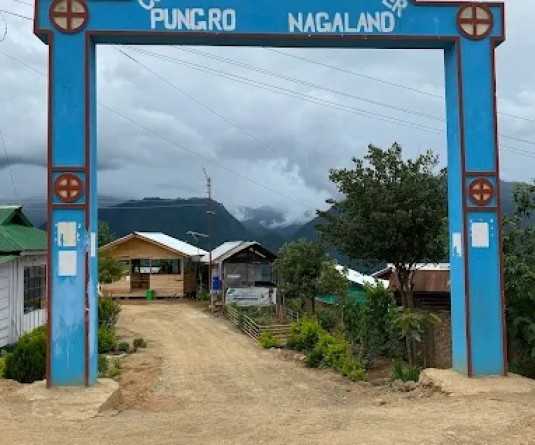Trainees and officials during the training organized at SBI-RSETI (SBI-Rural Self Employment Training Institute), Jalukie, Peren. The programme is implemented by ANMA Integrated Development Association. (Photo Courtesy: AIDA Dimapur)

Dimapur, January 12 (MExN): A training to empower the youth on livelihood was organized at SBI-RSETI (SBI-Rural Self Employment Training Institute), Jalukie, Peren. The training was held as part of the SBI Gram Seva Programme implemented in five adopted villages under Chümoukedima sub-division of Dimapur district, namely, Urra, Bade, Khriezephe, Diezephe and Tsithrongse.
The programme is implemented by ANMA Integrated Development Association (AIDA), the development wing of Salesians of Don Bosco, Dimapur province, informed PRO, AIDA Don Bosco Dimapur.
The 10-day long training for 26 participants from four adopted villages of Urra, Bade, Khriezephe and Diezephe began on January 11. The selected candidates will undergo training on pig rearing and management for small scale farmers.
Director of SBI-RSETI, Novin Basumatary welcomed the two AIDA staff, Imnayangla Jamir, Convergence officer and Maongkar T Changkiri, Livelihood officer and the 26 trainees. The training started with an introductory session and theory classes on piggery management.
“The youth were motivated and came forward for the training as part of the celebration of the National Youth Day 2021. There will be more trainings of such nature be organized as per the community need in the future for the adopted villages,” the PRO added in the press release.
About SBI Gram Seva
The SBI Gram Seva was launched on October 2, 2020. This integrated rural development programme aims at digitalization of villages, promotion of quality education for rural students, improvement of primary health services, improvement in accessibility to safe drinking water and sanitation, promotion of sustainable livelihood practices and improving farmers’ income, empowerment of rural women and youth engagement, environment protection, improvement of rural infrastructure for improved access to basic services, improvement in coverage of benefits and schemes of the government capacity building for participatory rural development.
The project duration is proposed for three years of intervention in various activities with extension of another two years. Although SBI Foundation has adopted an integrated approach for rural development, key focus areas will be identified keeping in view of the general need of the village communities.






